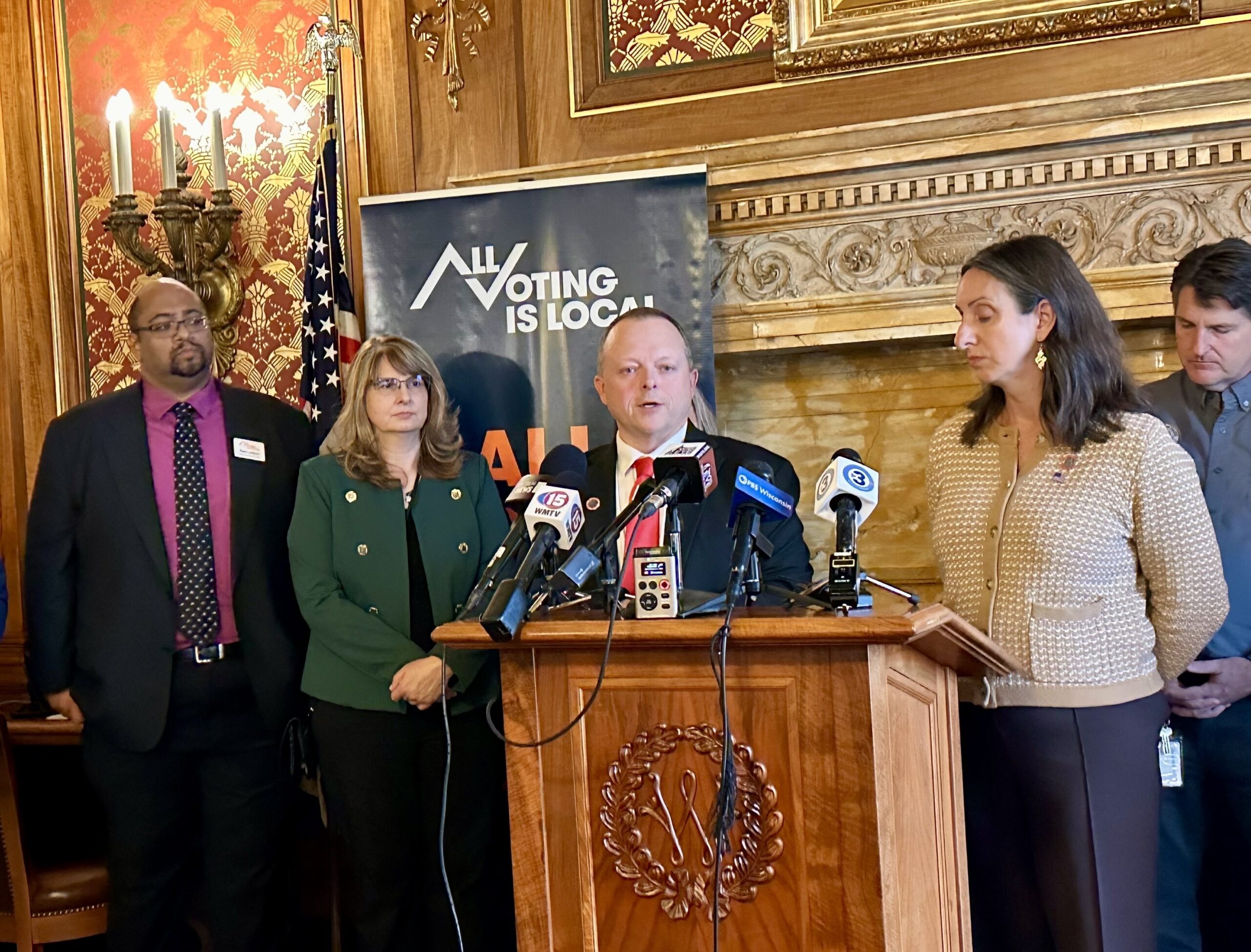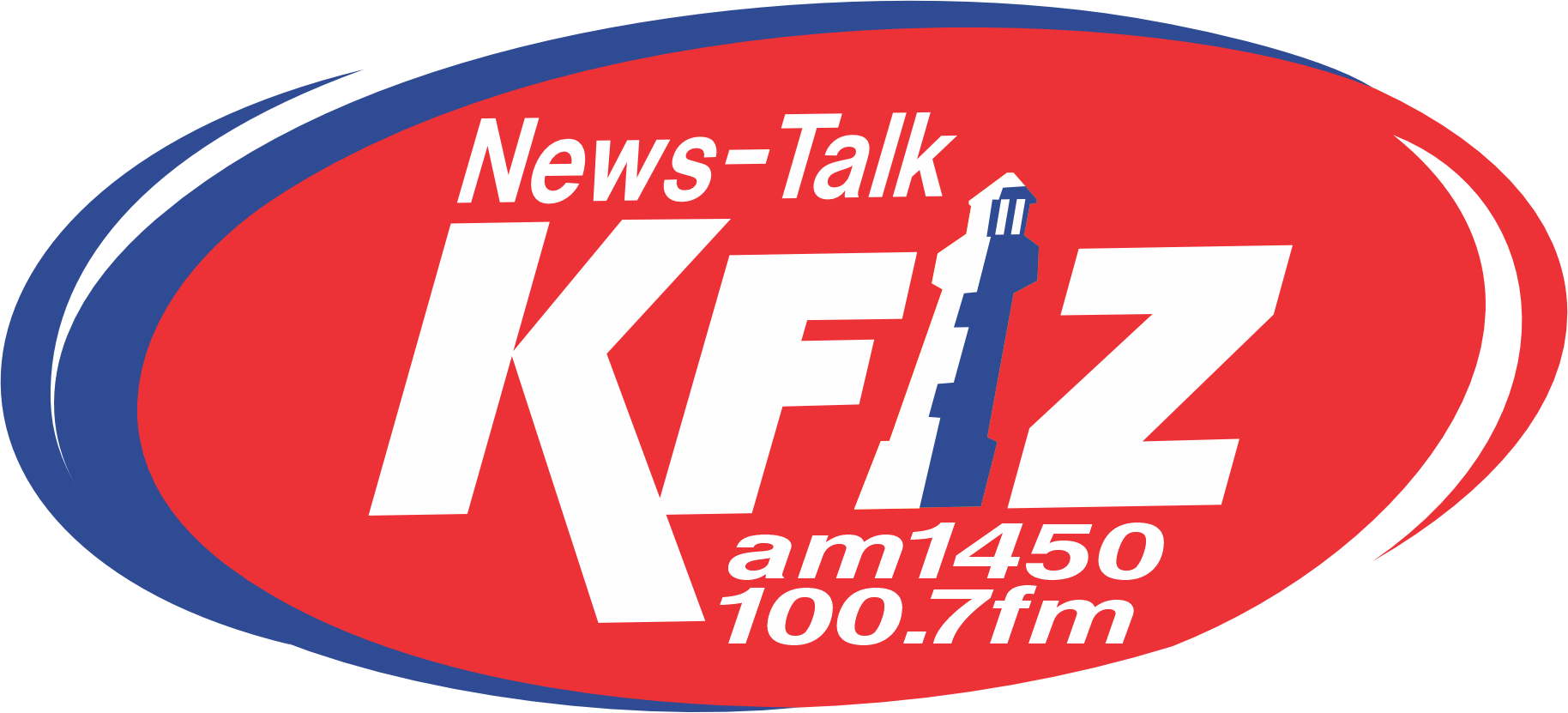Wisconsin News
Wisconsin Republicans and Democrats are backing election bills. Just not the same ones.

In an unusual move, Assembly Republicans and Democrats stood shoulder-to-shoulder at a state Capitol news conference Wednesday to unveil a series of bills to update Wisconsin’s election laws.
The catch? They didn’t all support the same bills.
The idea, according to Rep. Lee Snodgrass, D-Appleton, is to meet “the moment” at a time of partisan division. She and other Democrats thanked Rep. Scott Krug, R-Rome, the vice-chair of the Assembly elections committee, for being open to good faith debate over how to shore up voting in Wisconsin.
“The partisan divide has become not just contentious, but even hostile,” she said. “Rep. Krug and I will continue to model that civil conversations and debate can happen in the same room, from the same podium and with the same goal in mind, in spite of diverging ideas.”
But Krug and Snodgrass support only a few of the same bills. Instead, the two parties will largely back their own priorities, with familiar legislative politics expected to win out all around: strictly Democratic bills are unlikely to get a vote in the Assembly, and party-line GOP bills are unlikely to survive Gov. Tony Evers’ veto pen.
“The governor’s been clear that he’s not going to approve measures that make it harder for eligible Wisconsinites to cast their ballot or that undermine and sow distrust in our fair and secure elections,” Evers’ spokesperson, Britt Cudaback, said in an email.
A chief illustration of this challenge is a bill to allow absentee ballots to be processed one day earlier than election day. That’s a change that both parties have supported in theory for years, motivated by long waits for election results in recent elections as voters have increasingly turned to mail-in and early voting options.
But while a bipartisan proposal to do exactly that has moved forward in the past, Krug’s proposal is one that Democrats say they’re unlikely to support. Instead of a standalone “Monday processing” bill, his will include enhanced security at vote drop boxes that Democrats argue would make their use functionally impossible.
Sen. Mark Spreitzer, D-Beloit, who has championed efforts to pass an early vote processing bill since 2019, described Krug’s proposal as poisoned, arguing that he had capitulated to “extremists” in the Republican Party.
“Unfortunately, today, Rep. Krug has backslid and put in more unworkable things,” Spreitzer said. “I think what Rep. Krug is trying to do is get it through extremists in the Republican caucus by adding in tired ideas that make it harder for people to vote, ideas that have already been thoroughly litigated and in many cases vetoed by Gov. Evers.”
Faith in elections administration has declined in recent years, primarily among Republicans, motivated in large part by President Donald Trump’s false claims about elections being rigged. But confidence in elections has declined among Democrats, too, especially after the 2024 election when their party suffered major blows.
Krug said members of both parties engaged in the legislative process to address that trust gap.
There are areas where he said Wisconsin Republicans are charting their own path. For example, despite efforts from the Trump White House to push for an end to mail-in voting, he said the Assembly GOP would continue to support that option.
“We need safety. We need security. We need to know who voters are. But we also want to make sure that we understand that we set the line in Wisconsin, that we have our own election system,” Krug said.
“So as you hear things coming out of Washington about … ‘We don’t want to do mail-in voting anymore. We’re going to get rid of machines and do hand counting and some things like that,’ those are things we have not included in this package,” Krug said. “Because that’s not the Wisconsin way.”
Lawmakers have sought for years to make Wisconsin’s processing of early votes a little more efficient by allowing poll workers to begin processing ballots on the Monday before election day.
Current law says every aspect of ballot counting, from opening the envelopes and flattening the ballots to feeding them through machines, must take place on election day itself. In some places, including Milwaukee, that all takes place at one central location.
That means that results from Milwaukee and other Democratic-majority population centers are often the last to be known. In some instances, that’s caused statewide results in pivotal elections to be delayed to the middle of the night, and in 2020, that fueled false claims by Trump that illegitimate votes had been added in the cover of darkness.
In 2023, lawmakers in the Assembly from both parties voted to approve a bill to give clerks an extra day to begin that process, but the effort stalled out in the Senate in 2024.
On Wednesday, Krug said he would reintroduce a version of that bill later this week that will include other provisions about security around voter drop boxes that he hoped would get more Republicans onboard.
“People who are in our communities who see drop boxes on the corner want to know that they have security, that they have standards, that they’re being used the same across the state of Wisconsin,” Krug said. “And I know we don’t all agree on what those provisions and those standards should be, but we’ll have a good conversation about that.”
Snodgrass said she would not support that proposal but expressed optimism that debates in committee could lead to changes.
“I think it’s over-bloated,” she said of Krug’s proposal. “I think if you talk to municipal clerks, a lot of the technical aspects of it are impossible. I’d like to see a cleaner bill so we can get into the details in committee.”
In an email, Evers’ spokesperson said the governor’s office hasn’t “closely reviewed” Krug’s bill.
“It’s disappointing Republicans have decided not to pass a clean bill with bipartisan support, instead packing a number of other election reforms into the legislation,” Cudaback said.
Among the dozen Democratic bills circulated on Wednesday, two already have Krug’s backing, indicating at least the beginnings of bipartisan support.
One of those would allow 16- and 17-year-olds to preregister to vote if they will be 18 and otherwise qualified to vote by election day. The bill’s drafters say this prevents delays in accessing the right to vote from an early age.
The other would require the state Department of Public Instruction to develop voting education tools for students in their social studies and civics classes.
Democrats on Wednesday also circulated proposals that would allow 17-year-olds to vote in a primary if they’ll be 18 by the general election, provide voter registration information to high school students, require elected officials to work at the polls in their first terms and every three years thereafter, and require clerks to alert a voter if there is an error on their absentee ballot “if time permits a voter to make a correction.”
And one Democratic-authored bill would criminalize certain behavior at polling places, including harassment, intimidation, causing fear, or engaging “in loud, boisterous, or otherwise disruptive conduct.” They also proposed the instatement of ranked choice voting, which Republicans largely oppose.
Snodgrass said she and other elections committee Democrats do not endorse Krug’s bills, which will be released later this week.
In addition to the Monday processing bill, one GOP proposal would end the “draw-down” system, by which clerks toss out ballots to square the number of ballots cast with the number of eligible voters.
“A clerical error can lead to an actually legal ballot being tossed out,” Krug said. He argued that Wisconsin should instead implement risk-limiting audits, which check voting records for accuracy using statistical methods.
Another bill would establish a conflict resolution process for disputes between election observers and poll workers. Krug argued this would allow those disputes to be resolved quickly, instead of needing the statewide Wisconsin Elections Commission to weigh in.
“A county clerk or their designee can be in charge of saying, ‘Yes, this was done right,’ or ‘No, maybe this wasn’t done right, and let’s push the reset button on election day,’” he said.
At Wednesday’s atypical press conference, the lawmakers were introduced by Sam Liebert, Wisconsin director of the All Voting is Local nonprofit. Liebert argued that both parties’ willingness to respond to their voters’ concerns is “something we should recognize and encourage.”
“Each idea … whether we agree fully or not, contribute to an important conversation about how we keep Wisconsin elections free, fair, accessible and transparent,” he said. “This is how our democracy should work.”
Wisconsin Public Radio, © Copyright 2025, Board of Regents of the University of Wisconsin System and Wisconsin Educational Communications Board.


